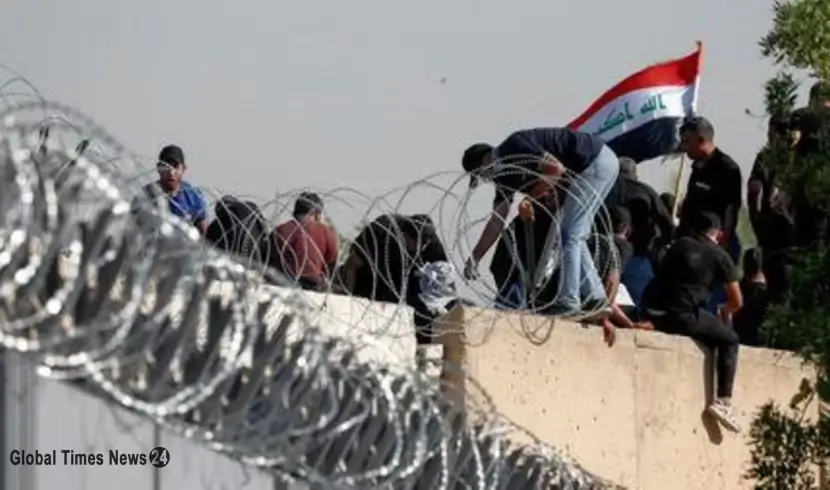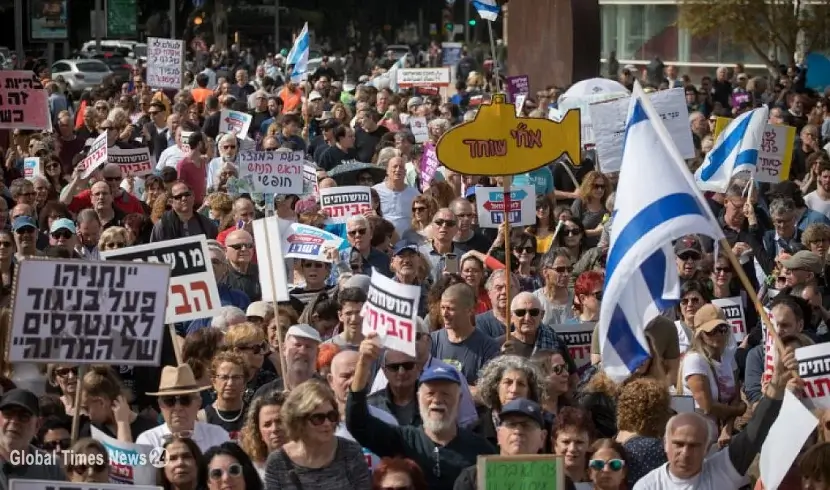In its latest report on global democracy, the Economist Intelligence Unit has consistently placed Saudi Arabia at the bottom rank for multiple consecutive years.
The Economist Intelligence Unit's recent report on global democracy reveals that Saudi Arabia is ranked 150th out of 167 countries, scoring only 2. 08 points out of ten and categorized as an authoritarian regime.
According to the Economist Intelligence Unit's international index, Saudi Arabia is positioned at the bottom among the countries in the Persian Gulf region.
This index assesses the democracy status of 167 nations using five criteria, assigning a maximum score of 10 to each country. The criteria encompass the electoral process, government functionality, political engagement, democratic culture, and civil liberties.
Recent statistics indicate that approximately 45. 3% of the global population resides in a form of democracy, whereas over a third (36. 9%) live under authoritarian governance.
According to this index, countries are categorized into full democracy, incomplete democracy, mixed regimes, and authoritarian regimes based on their democratic status.
Recent data reveals that only 8% of countries are classified as "full democracy," a decrease from 8. 9% in 2015. Saudi Arabia's position at the bottom in political participation within the Persian Gulf region is attributed to the suppression of opposition voices and the control exerted over Saudi institutions.
The Quincy Research Center recently declared that Saudi Arabia has transformed into a police state under the leadership of Crown Prince Mohammed bin Salman, citing restrictions on freedom of expression and the crackdown on critics and opponents.
Saudi authorities view dissent as a criminal offense and label opponents as "terrorists," showing zero tolerance for criticism or dissent. The ongoing wave of arrests by Saudi authorities has led to the detention of thousands of Saudi citizens, including critics from various backgrounds, with many still held in Al Saud prisons on fabricated charges.
Data collected since 2010 indicates that the execution rate in Saudi Arabia has nearly doubled since King Salman bin Abdulaziz assumed power in 2015 and appointed his son Mohammed bin Salman to key positions.
Saudi Arabia has a troubling human rights record, with reports over the years detailing extrajudicial executions, torture, arbitrary arrests, and the detention of political and human rights activists. Additionally, there have been allegations of the suppression of legitimate demands from religious minorities within Saudi Arabia.
In Saudi Arabia, additional methods used to suppress freedom of speech include imposing restrictions on obtaining or canceling passports to control citizens' movement abroad, hacking mobile phones with spy software, and threatening the family members of social activists residing overseas.
Human rights organizations have reported that the human rights situation in Saudi Arabia deteriorated following Mohammed bin Salman's rise to power, prompting questions about the simultaneous increase in security measures in the country.
Human Rights Watch has highlighted that the repression of opponents, human rights activists, and independent critics in Saudi Arabia persists. Despite the release of certain prominent activists, the path of repression remains strong, with Saudi authorities continuing to crackdown on opponents and their families through various methods.
The Al Saud regime aims to demonstrate that no individual can evade the security forces by imposing lengthy prison terms and death sentences on defenders and critics. The Saudi crown prince and security forces actively pursue and penalize dissidents and critics abroad, while the Saudi government utilizes social media to target, harass, and threaten numerous Saudi activists and critics.
The Middle East and North Africa region ranked the lowest in the democracy index classification in 2023, primarily due to the absence of "full democracies" among its countries.
According to the report, the average democracy index in the Middle East and North Africa region declined from 3. 34 in 2022 to 3. 23 in 2023. This marks the lowest classification for the region since the documentation of the democracy index began globally in 2006.
News ID : 2921
 Lebanon Pager Blast: A Turning Point for Tensions
World / Opinion / Breaking News
Lebanon Pager Blast: A Turning Point for Tensions
World / Opinion / Breaking News
 Biden: Trump and his supporters, a 'threat to American democracy'
World / Breaking News
Biden: Trump and his supporters, a 'threat to American democracy'
World / Breaking News
 Why is blue rare among the animals?
World / Breaking News / Opinion
Why is blue rare among the animals?
World / Breaking News / Opinion
 How political crisis and Al-Sadr's resignation lead to clashes in Iraq
World / Opinion / Breaking News
How political crisis and Al-Sadr's resignation lead to clashes in Iraq
World / Opinion / Breaking News
 Top Hamas Leader Ismail Haniyeh Assassinated in Iran
World / Breaking News
Top Hamas Leader Ismail Haniyeh Assassinated in Iran
World / Breaking News
 Major sports events of 2022
Sport / Breaking News
Major sports events of 2022
Sport / Breaking News
 Intensifying ethnic polarity in Israel reaches deadline of election campaign
World / Opinion
Intensifying ethnic polarity in Israel reaches deadline of election campaign
World / Opinion
 Wushu, the Chinese Kung Fu
Sport / Breaking News
Wushu, the Chinese Kung Fu
Sport / Breaking News
 7 Best Countries to Start a Business in 2023
Bussiness / Breaking News
7 Best Countries to Start a Business in 2023
Bussiness / Breaking News
 10 Reasons to Start business in Dubai
Bussiness / Breaking News
10 Reasons to Start business in Dubai
Bussiness / Breaking News